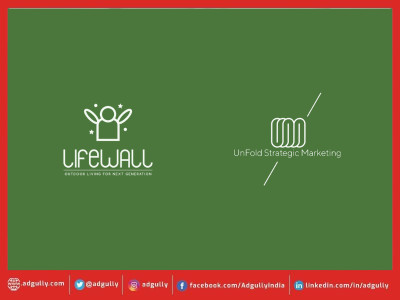Becoming a mother has helped me become a better leader: Rajni Daswani
We, at Adgully, have always saluted and honoured women managers and leaders across diverse fields. Over the years, W-SUITE, a special initiative from Adgully, has been turning the spotlight on some of the most remarkable women achievers in the M&E, Advertising, Marketing, PR and Communications industry.
On the occasion of Mother’s Day this year, Adgully has come up with a month-long special series saluting the Moms in the Agency business. The series will explore how successful women leaders, who are also mothers, are achieving work-life balance, and are also creating an inclusive work environment so that the mothers in their teams can work to their full potential.
In conversation with Adgully, Rajni Daswani, Director - Digital Marketing, SoCheers, speaks about how she maintains work-life balance as a woman leader and mother, how workplaces have appreciated and helped working mothers, and much more.
As a woman leader, how do you manage to maintain a work-life balance as a working mom? What tips would you give to other working mothers who are struggling to manage their work and personal life?
As a working mom, I understand the challenge/s of balancing work and personal life. It’s not easy to give your best in both aspects! However, I strongly believe that prioritising the important things and focusing your time as well as energy on them can be helpful. And, trust me, that has helped me a lot.
For instance, as a working mother, you may not be able to spend all day with your child, so use the early morning and evening hours to do everything you want with them. Then, during your 8 hours at work, give your complete attention to what needs to be done. Setting boundaries and compartmentalising your time can work wonders.
My tip to other working mothers struggling to manage their work and personal life is to communicate their needs and priorities with their employers and family. Also, it’s essential to delegate tasks and take help from your partner, family, or friends whenever possible. Remember that it’s okay to ask for help and prioritise your well-being.
How do you deal with “mommy guilt” while working and how do you balance your personal and professional life while being a mother? Can you share some personal experiences?
I believe that mommy guilt is something that all mothers experience, regardless of whether they work outside the home or not. When you become a mother, you want to give your baby the world, and it’s natural to feel guilty about not being able to do everything perfectly.
For some moms, the guilt might come from not having enough time, while for others, it could be about not being able to help with schoolwork or providing the best nutrition. However, the only way to overcome this guilt is to believe in yourself and remind yourself that you are doing your best.
Your child will love you 30 years from now, even if you couldn’t pick them up from school one day or couldn’t make their favourite food. It’s important to go easy on yourself, especially when you are already juggling multiple responsibilities.
I recently experienced a mommy guilt trip when I had to choose between taking my daughter to the park or resting over the weekend. While I try to make every weekend count, I chose to prioritise my own rest and well-being over forcing myself to over-extend and feel guilty about it later. It’s okay to make these choices and take care of yourself as a mother.
Could you share your experience of returning to work after maternity leave? What challenges did you face and how did you overcome them? What changes would you like to see in the workplace to support working mothers?
Returning to work after maternity leave can be a challenging experience. Firstly, everything feels new, as you’ve been away from work for 4-6 months and things have changed. It’s like starting over with your team and clients. Secondly, your body and mind have undergone a lot of changes during pregnancy and postpartum, which can impact your focus and attention at work, and your body needs time to heal. It takes time to bounce back into the role you had before pregnancy, and the social pressure can add to the challenge. Thirdly, there’s often a lack of support for baby care once you return to work. Many women drop out of the workforce due to a lack of affordable or available daycares.
To support new moms returning to work, companies need to understand that they are excited to come back and will give their best. Providing challenges, support, and understanding can help them shine. Offering baby care services can also help moms be more productive. By addressing these challenges, we can create a more supportive and inclusive workplace for working mothers.
How has being a mother impacted your leadership style and decision-making as a woman leader? Have you noticed any positive changes in your leadership skills since becoming a mother?
Being a mother has impacted my leadership style in a positive way. I’ve become more patient, empathetic, and understanding towards my team members. I’ve learned to delegate work better and trust my team members to take on more responsibilities.
Motherhood has also taught me the importance of work-life balance and the need to support my team members in achieving it. I try to create a flexible work environment that enables my team members to balance their personal and professional lives.
Overall, I believe that becoming a mother has helped me become a better leader, and I am grateful for the new perspectives and skills it has brought to my leadership style.
What steps has your company taken to support and empower working mothers, and how do you ensure that mothers are not discriminated against in the workplace?
We have a 6-month maternity and a 1-month paternity leave in place. Working moms have flexibility in terms of work-from-home to be able to balance their work and personal lives. They are given equal opportunities, challenging enough to ensure they keep growing. Moreover, we have a nursing room set up at the office and have provision for nursing moms to have their safe space in the office as well. We are a very young agency, so we are learning and adapting to our people’s needs. If any other need arises, we’ll work out something to support all of our employees, including working mothers.
How can other companies follow suit to create a more inclusive workplace for working mothers? What are the best global practices you have come across in this regard?
Being empathetic, not looking down on a woman, taking time to focus on family and giving equal opportunities are the basic things a company can provide to make their organisation inclusive. Moreover, one of the best global practices is providing day care services for employees with kids, JP Morgan does this internationally. It gives parents peace of mind to know their kid is taken care of by professional caretakers.


















Share
Facebook
YouTube
Tweet
Twitter
LinkedIn